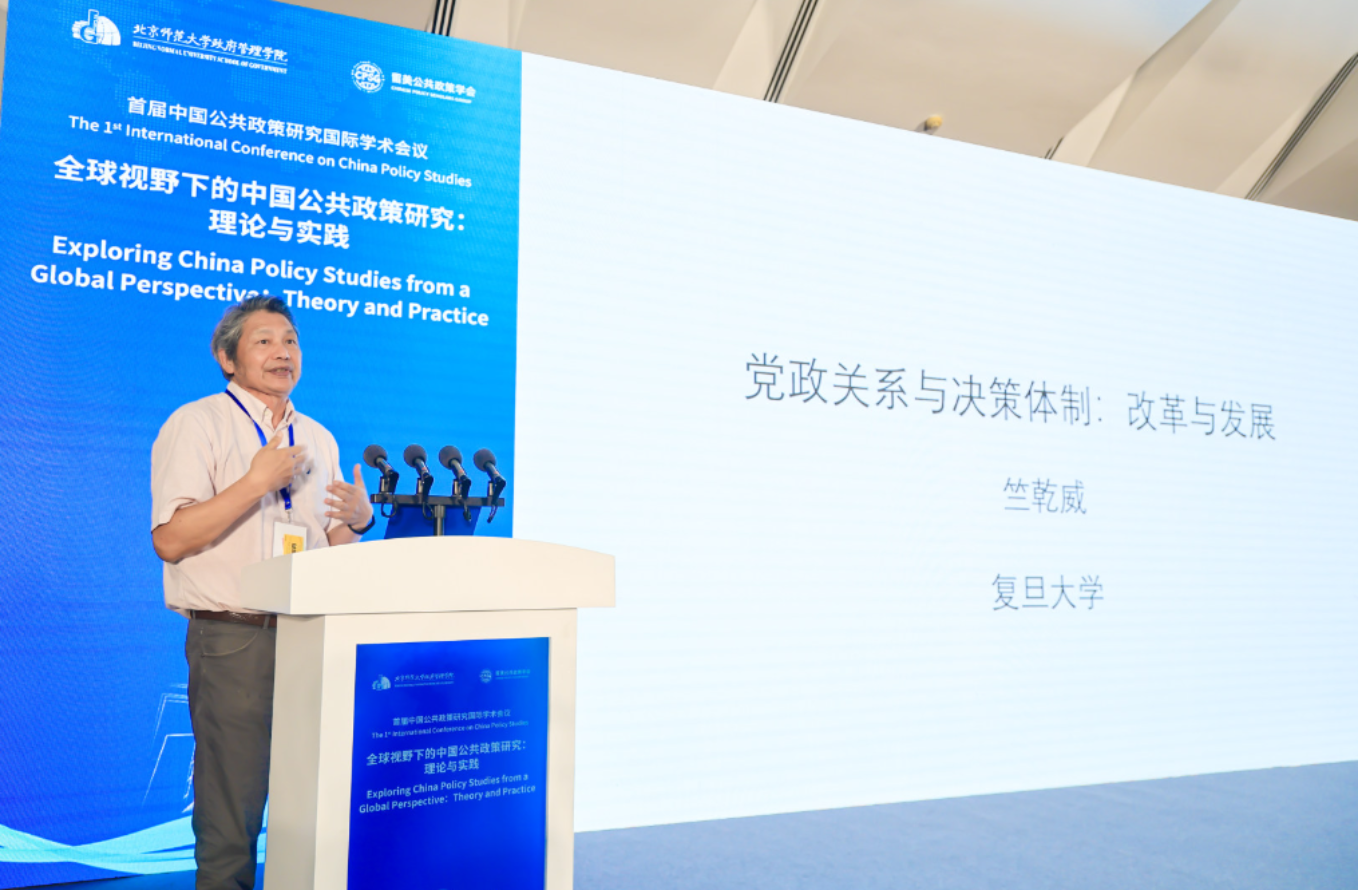Qianwei Zhu : Separation or Unity? Exploring the Party-Government Relationship and the Diversity of Government Decisions

On the afternoon of June 15, at ICCPS 2024, Professor Qianwei Zhu from the School of International Relations and Public Affairs at Fudan University gave a keynote presentation entitled "Party-Government Relationship and the Decision-Making System: Reform and Development." Professor Zhu proposed that the Chinese government's decision-making system embodies characteristics of both a head system and Collegiate Bench System. He underscored that local governments have varied understandings and approaches to the relationship between the Party and the government. This diversity not only impacts decision-making efficiency but also presents challenges in sharing decision-making responsibilities. Professor Zhu emphasized the need to promote the modernization of the national governance system and enhance governance capacity, it is essential to improve the Party-government Collegiate Bench System.
Professor Zhu highlighted that the relationship between the Party and the government is the core of China's political system. In this system, the Party acts as the supreme leader, while government exercise power under the Party's leadership. This relationship profoundly impacts the government's decision-making process. Since the Economic Reform and Opening Up, the Party-government relationship has evolved from unity to separation. Subsequently, it has strengthened the Party's centralized leadership. The mainstream approach in classifying Party and government organizations is the balance between separation and Collegiate Bench System. The separation mode emphasizes the division of functions between the Party and the government, while the Collegiate Bench System mode presents a contradiction between the Collegiate Bench System and the head system in the decision-making process. For example, some local governments accentuate the role of the head of government, while others focus on implementing the Party-government integration system. This results in diversity and limitations in local government decision-making.
Professor Zhu outlined the challenges and opportunities presented by the reform of the party-government relationship. He called on scholars to further research and improve the Party-government integration system to ensure the efficiency and legitimacy of the decision-making process. This would facilitate the effective alignment of the Party's leadership with government decision-making and promote the modernization of the national governance system and governance capacity.
Introduction to Keynote Speakers

Qianwei Zhu is a Professor at the School of International Relations and Public Affairs at Fudan University. His research areas include public management theory, comparative public administration, organizational and human resource management, and contemporary Chinese public administration. He has led multiple major projects granted by the National Office for Philosophy and Social Sciences of China, authored over ten monographs, and published over 100 papers in International Journal of Public Administration, Chinese Public Administration, and other prestigious Chinese and international journals.
